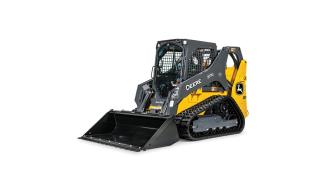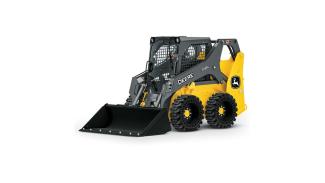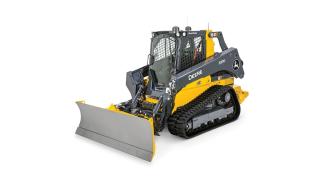Prioritizing safety is essential for any equipment operator, so learning how to safely operation compact construction equipment is a must. Continue reading as we discuss why safety is crucial around compact construction equipment and review key safety considerations for this type of equipment.
Why is safety important around compact construction equipment?
Compact construction equipment includes skid steer loaders, mini excavators, compact track loaders, and compact wheel loaders. These machines are a popular choice because of their compact size yet versatile capabilities. However, they come with the same risks as larger equipment, ranging from minor accidents to life-threatening situations.
Safety is extremely important to protect operators, workers, and bystanders from injuries or accidents. Taking the time and attention to prioritize safety helps mitigate risks and create a secure working environment.
What are the key safety considerations specific to compact construction equipment?
Please refer to the owner’s manual for specific safety considerations for your exact piece of equipment.
Safe operating practices
- Familiarize yourself with the owner’s manual to thoroughly understand the equipment’s features, controls, and limitations. Make sure you know the safe operating speeds, weight capacities, and reach limitations.
- Each time before use, inspect the equipment for any visible damages, leaks, or malfunctions. Check all safety features, such as lights, alarms, and backup cameras, to ensure they are working properly.
- Before starting work, assess your work area for potential hazards. This includes overhead powerlines, underground utilities, or unstable ground. Remove all debris and create barriers to prevent others from accessing the work area.
Personal protection equipment
Minimize the risk of injuries by wearing proper personal protection equipment (PPE).
- Hard hat: Protect yourself from head injuries in case objects fall.
- Steel-toed boots: Provide foot protection from equipment and heavy objects.
- Safety glasses: Protect your eyes from dust, debris, and other hazards.
- Gloves: Improve grip while operating equipment and prevent hand cuts or injuries.
- High-visibility vest: Prevent accidents by ensuring you are visible to other workers and vehicles.
Training
Anyone operating or working around compact construction equipment should go through proper training before work begins. Training should include the following:
- Comprehensive review of the equipment they will be operating, including safe operation, emergency procedures, and controls.
- Thorough understanding of the safety protocols, including maintaining safe distances, seat belts, and proper communication on the worksite.
Equipment inspections
Routine equipment inspections will help ensure the optimal performance and safety of your equipment and help you maintain its lifespan.
- Pre-operation inspections for any loose parts or leaks can catch issues before they become larger. Safety features should also be reviewed during these inspections to ensure they are working correctly.
- Routine inspections and maintenance should be performed by certified technicians. The KoenigCare Compact Construction Equipment Inspection program is designed to maximize operating performance, minimize repair costs, and reduce downtime by preventing unexpected failures. A factory-trained technician will perform a multi-point inspection, make required repairs, and recommend any additional job-ready performance upgrades that might be helpful.
Shut down procedures
Proper shut-down procedures are essential to ensure the equipment is safely turned off and secured when not in use.
- Choose a stable, level surface for parking to prevent the risk of the equipment accidentally moving.
- Lower the attachments to the ground so the hydraulics will not settle and the attachment lower on its own.
- Ensure the parking brake is engaged, all controls are in the neutral position, and turn the engine off.
Where can I go to learn more about compact construction equipment?
To learn more about John Deere compact construction equipment, contact the team at Koenig Equipment. Our experts are ready to offer valuable insights, guidance, and resources to enhance your understanding these machines.
Whether you need information about specific models, safety guidelines, or service support, Koenig Equipment is your go-to source for reliable information. Contact your local Koenig Equipment today to learn more.
Additional Resources:
Compact Construction Equipment
How Long Does Compact Construction Equipment Last – Is It Worth a Repair?
How Can John Deere Wheel Loaders Support My Job Site?



